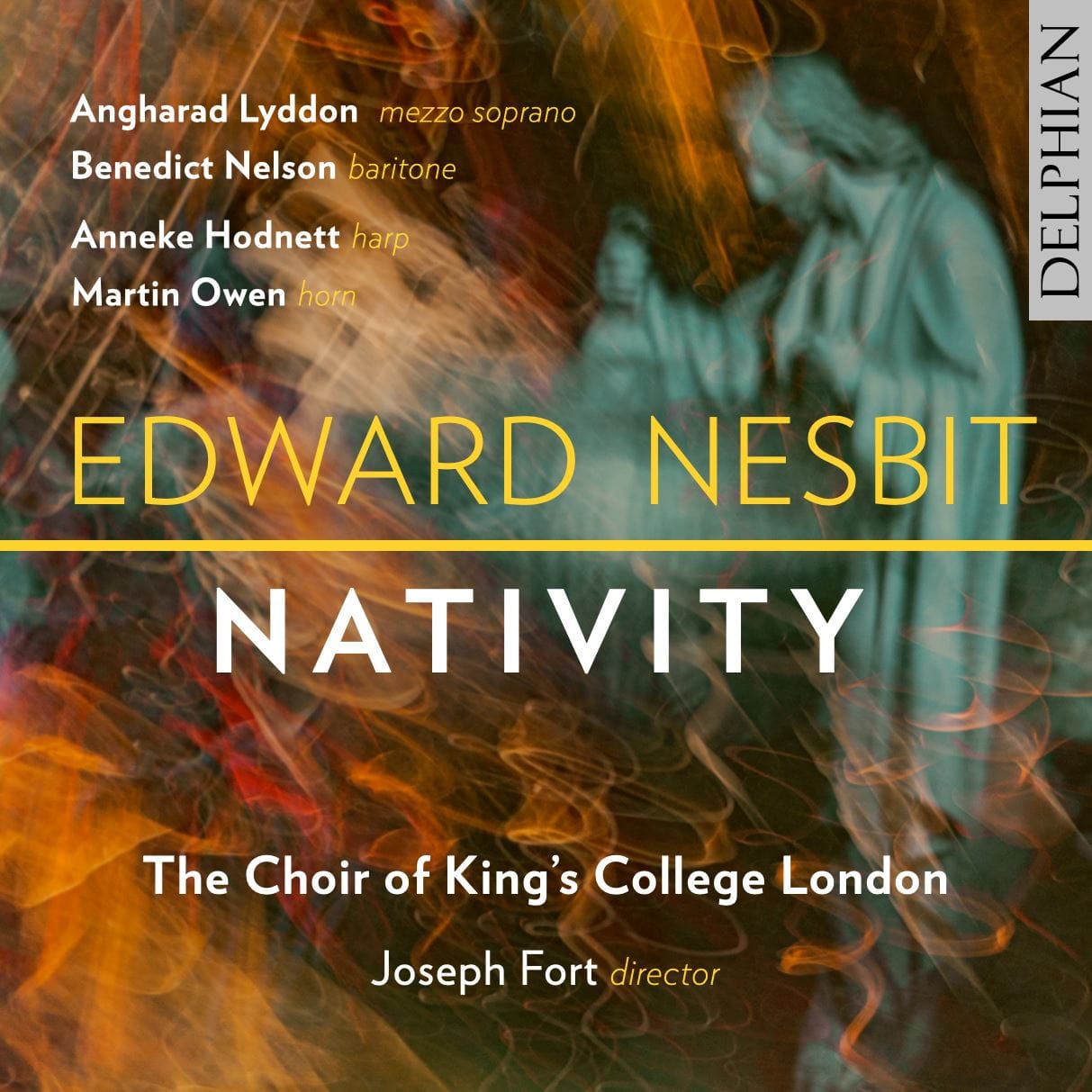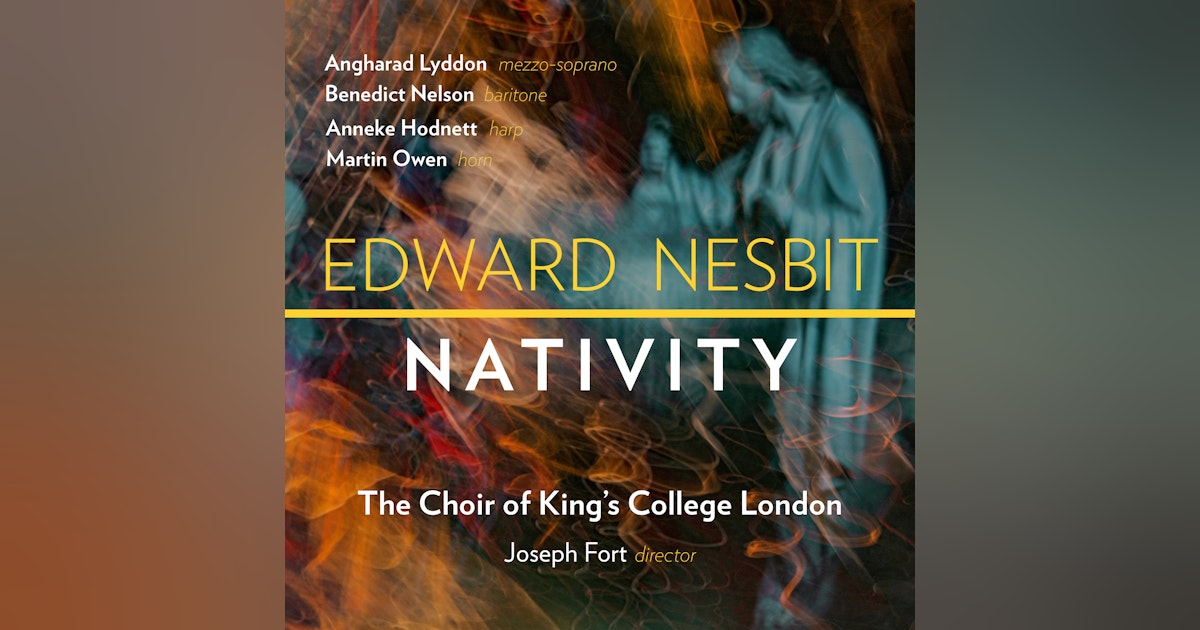
It is nice to hear the choir of my old college, King’s College, London, in so vibrant form; the composer here, Edward Nesbit, is currently lecturer in composition there.
Christmas music is traditionally reflective: the Yuletide output of Edward Nesbit is anything but. He has humour, vibrancy and, whoever the tempo, life. He also has a penchant of obbligato horn (her the wonderful Martin Owen). With a distinctive harmonic palette, Edward Nesbit brings a new individuality to Christmas:
Angharad Lyddon is a new voice who is making waves. She was Floßhilde in Jurowski’s Götterdämmerung at the Festival Hall with the LPO; she was alsoMara in COG’s Boito Mefistofele Martin Owen we previously met in Schumann on Chandos. Benedict Nelson is a superb baritone, and one of the highlights of the disc is a recitative (not often one says that!) in Nativity – “All-wielding God in trinity” where voice and horn are in perfect unity..
Owen’s virtuosity shines in the next movement the scherzo “God will us guide,” horn calls echoing as both Lyddon and Nelson contribute. There is a ouch of Britten about this.
The first movement, “So stick up ivy and the bays” gives a hint as to what to expect:
Nesbit includes two “Lullabies” – not everything is dynamic – and Lyddon’s voice with harp in the first is magical. Add to this the hypnotic second Recitative (for horn and baritone) and you get a nice balance between the dynamic and the reflective.
A repeated trips is an ascending, almost searching interval from the solo horn which surely reflects back.the Prologue (and Epilogue) of Britten’s Serenade for horn and strings. The harp inevitably seems to stretch back to Britten too (Ceremony of Carols), but how it seems perfect for the lively Scherzo 2 (“Say, Mary daughter, what cheer with thee?”); the choir is absolutely spot-on rhythmically and superbly trained: try also the final chorus (with horn and harp) “Peace? And to all the World,’ juxtapositions of pure joy and reflection.
Texts are from one of the York Mystery Plays and the poetry of Henry Vaughan (one of the Metaphysical poets – the most famous of which was John Donne) – the Vaughan acts as commentary, almost like the chorales in a Bach Passion. Vaughan’s poetry appears agin later in the programme in the Metaphysical Songs for choir: two Christmas songs, the reflective “Awake, glad heart!”and the drone-based, achieve “The Shepherds” (this last I think my own personal favourite track on the disc!: the lanes just keep adding up …).
The Wycliffe Carols are settings of texts used by Handel in Messiah, but which use the 14th-century Wycliffe Bible and not the more usual King James – hence the texts will have a familiar “ring” to them!. (Be ye comforted! – Comfort ye!). The Kng’s College Choir is radiant (I haven’t heard them for a few years now and they seem absolutely transformed). Some of the harmonies are decidedly tricky – “In to plain ways” being one – and they are supremely confident. Both Handel and Nesbit bring real cheer to “Forsooth a little child” (Nesbit) /“For unto us a child is born” (Handel) – the music in Nesbit’s hand seems to ricochet around the sound space with unstoppable.effervescence. Later, we gt an “extra” – from Dop down, ye heavens, “Comfort ye,” actually a truly beautiful harp solo, superbly performed by Anneke Hodnett.
The other ‘big’ piece here is Four Christmas Lyrics, based on anonymous medieval Christmas texts. plus one from the 16th-centuury. The first, “At a spring-wel under a thorn” is radiant in a way not heard thus far, the high voices perfect, with no hardening of tone eater in he upper dynamics or pitches. A perfectly achieved diminuendo at the end of the second piece, “Byhalde merveyles,” toom and a fabulously scampering final “Abowt the fyld thei pyped full right,” too.
If you fancy a change for the traditional Christmas music, and want to encounter a vibrant new voice, this is for you (the choir’s first recording of Nesbit’s choral music in 2022 achieved some success, by the way).
The disc is available at Amazon ; seaming links below.









